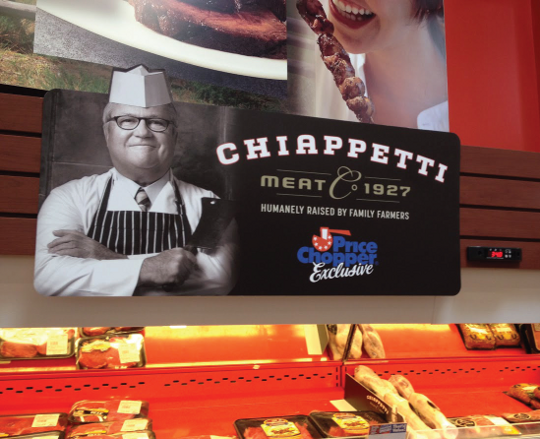
By / Perry Seelert
There are two wildly popular television shows that are global, Shark Tank and Dragon’s Den, which are must-see viewing in our household. Both of them are cut out of the same cloth, setting up great confrontations between the entrepreneurs who pitch their product/company ideas and the “sharks” who evaluate them for equity stakes. I can’t get enough of it. One thing that sharks are always looking to tease out of the entrepreneurs is why they started the business, where did they see the consumer need, and did the company’s origin come from a place of true passion? They are interested in the heart and soul behind the idea just as much as the economics.
More than ever today, the lineage of a company and a brand matters to consumers. It matters in retail branding too, and there are new lessons to be learned about how you should connect your own brand vividly to your store. There are three underlying drivers to why brand ownership, story and lineage are important facets to your success:
Authenticity & The Millennial Generation – You have read of the increasing consumer importance of Millennials and how they value customization, are digitally native and early adopters, but one of the ethics they value the most is the authenticity of companies and brands. They want to understand roots and the purpose/mission within a brand. Are the roots and mission real?
Interestingly, the big food conglomerates have gobbled up many of these mission-oriented companies. Campbell’s purchased Plum Organics and Bolthouse Farms recently, and General Mills bought Cascadian Farms and Annie’s Naturals. They have done it to become more credible in the natural and organic segments, yes, but they also chose not to develop these products under their existing brands. They also decidedly do not advertise that the brands have new owners.
In fact, companies like Anheuser Busch/InBev choose to hide these purchases, like they did when they bought craft brewing sensation Goose Island. Nowhere in the marketing, advertising or packaging is there even a hint of the association to InBev, and you may ask, “do consumers even care”? Well, yes, increasingly they do. Sales show Goose Island is doing well (increasing distribution), but there is a core consumer who has been disaffected and moved away.
Transparency & Honesty – One of the most successful brand turnarounds in North America has been with the pizza chain, Domino’s, and you want to know why? It is because they were incredibly honest about their new mission, and many Millennials (and more) gave them tremendous credit for their truth-telling. They came out and said their pizza and sauce had lost their way, that they were bland and boring and not very flavorful. They basically said they sucked. And this honesty resonated, and has had a huge effect in Domino’s reacquiring share from Pizza Hut.
Safety – The third driving reason for exposing your brand’s lineage is that beyond authenticity and transparency, consumers want to know where a brand comes from for safety purposes. They want to know what a toy’s plastic composition is, what country it came from and in the food chain they increasingly want total ingredient visibility and origin.
Clearly, having your retailer’s name on the package adds to the brand’s lineage, and when the story is told right, can add meaningful texture. Danny Wegman not only puts the family name on the product line, but Wegmans Dog Food, called “Bruiser”, is even named after their beloved family dog. It has meaning.
What happens when you don’t utilize your retailer name on your brand? That can be perfectly fine in many cases, as long as the brand’s exclusivity to the store is clearly called out. Take for instance Price Chopper’s new line of meats, Chiappetti, which positions itself as humanely raised by family farmers. Throughout the meat case, within advertising and across social media, the brand is distinctly marked as a “Price Chopper Exclusive”.
However, if your own brand does not have the retailer’s name, is not endorsed by the retailer’s overarching brand, or is not denoted as a brand “exclusive” to the store, then I think you are working against the preferences of Millennials, and working against an overall consumer who is seeing their product and brand choices with a new transparency. Tell the story of where the brand comes from and why you created it, and you will be well positioned for the enlightened shopper.

Perry Seelert is retail branding and marketing expert, with a passion for challenging conventional strategy and truths. He is the Strategic Partner and Co-founder of emerge, a strategic mar-keting consultancy dedicated to helping retailers, manufacturers and Services grow exponentially and differentiate with purpose. Please contact Perry at perry@emergefromthepack.com.
